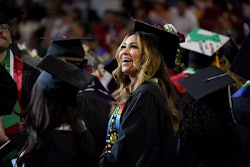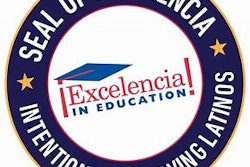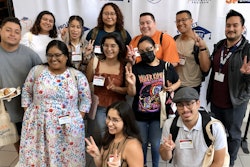WASHINGTON — More than 10 years have passed since she gave up her pursuit of a degree in computer science, but Yajahira Deaza still has regrets.
I feel incomplete,” says the 33-year-old, a customer service representative for a major New York bank. Her experience reflects the findings of an Associated Press-Univision poll that examined the attitudes of Latino adults toward higher education.
Despite strong belief in the value of a college diploma, Hispanics more often than not fall short of that goal.
The poll’s findings have broad implications not only for educators and parents, but for the economy.
In the next decade, U.S. companies will have to fill millions of jobs to replace well-trained baby boomers going into retirement. As the nation’s largest minority group, Latinos account for a growing share of the pool of workers, yet their skills may not be up to par. Aware of the challenge, some California State University campuses are reaching out to Hispanic children as early as the fourth grade.
“Aspirations for higher education are very strong among Hispanics, but there’s a yawning discrepancy between aspirations and actual attainment,” said Richard Fry, an education researcher at the Pew Hispanic Center.
Indeed, the poll, also sponsored by The Nielsen Company and Stanford University, found that Hispanics value higher education more than do Americans as a whole. Eighty-seven percent said a college education is extremely or very important, compared with 78 percent of the overall U.S. population.
Ninety-four percent of Latinos say they expect their own children to go to college, a desire that’s slightly stronger for girls. Seventy-four percent said the most important goal for a girl right after high school is to attend a four-year college, compared with 71 percent for boys.
Enthusiasm about higher education hasn’t been matched by results.
Census figures show that only 13 percent of Hispanics have a bachelor’s degree or higher, compared with 30 percent among Americans overall.
The poll revealed some of the roadblocks: Latinos don’t have enough money, yet many are reluctant to borrow. Family obligations intervene. Parents and teachers provide only lukewarm support.
Fifty-four percent said their own parents either did not expect them to go to college, or did not care either way.
After graduating high school, Angel Vasquez of Port Arthur, Texas, wanted to go to a technical school to become a diesel mechanic. First he wanted a six-month break. No, said the grandfather who raised him: Go to school immediately or get a job immediately.
Now 23, Vasquez works as a technician for a company that repairs buildings damaged by water and mold. “My grandparents raised me pretty good, and I understand where they were coming from,” he said. But “I seriously wish I would have gone to school because I could be making double the money.”
In the poll, just 29 percent cited poor grades in high school as an extremely or very important reason for not going to college.
“A main takeaway here for policy makers is that there are a lot of things that are inhibiting Hispanics, other than their academic performance,” said Michael Kirst, a Stanford University education professor. “They have really major barriers that are more intense for this population.”
Affordability was the top reason for not completing a college degree, cited by 54 percent as “extremely” or “very” important. Financial pressure is magnified by a reluctance to borrow that appears to be cultural.
Even among Latinos who are U.S. citizens by birth, only 32 percent said they had borrowed to finance education, compared with 39 percent of the general population. Aversion to debt was even stronger among the foreign-born.
Carolina Cardenas, who oversees outreach for the California State University system, says some Hispanic families don’t realize they can borrow on favorable terms for college.
“There’s a real misperception about how this money gets paid back,” she said. “They don’t want to owe too much, and they’re afraid they have to pay it back immediately.”
In California, the state university system tries to start working with Latino students no later than sixth grade, spelling out what they need to do year-by-year as they move through middle and high school. Part of the pitch is the comparatively low tuition at state schools.
The second most common reason for not finishing college was family responsibilities, cited as extremely or very important by 52 percent.
Deaza, the New York bank employee, said that’s why she had to leave her computer studies back in the late 1990s. A single mom-to-be, she was expecting her first child, a daughter who’s now 11. Deaza is married with three children now, and says she has a lot to be thankful for.
Still, she feels bad not having her degree. “I feel it the worst when I’m trying to find a job,” she said.
But she hasn’t totally given up her college dream. She’d study accounting next time around. “I like to work with numbers,” she said.
The AP-Univision Poll was conducted from March 11 to June 3 by the National Opinion Research Center at the University of Chicago, using a sample of Hispanic households provided by The Nielsen Company. The margin of sampling error is plus or minus 3.5 percentage points.
Stanford University’s participation in the study was made possible by a grant from The Bill & Melinda Gates Foundation.
AP News Survey Specialist Dennis Junius contributed to this report.















